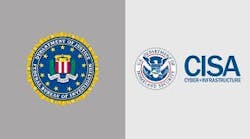Workers at the Department of Homeland Security will no longer be required to sign a controversial secrecy pledge prohibiting them from sharing sensitive but unclassified information with the public, DHS officials announced this week.
The three-page nondisclosure agreement, required since May for all 180,000 department workers and contractors, had been criticized by federal employee unions and government watchdog organizations. They called it an unprecedented clampdown on free-speech rights.
Jack Johnson, chief security officer at DHS, said in an interview yesterday that the agreements were always intended to be temporary until agency officials developed training for handling sensitive information.
"Was it perfect? -- no," Johnson said. "But it was decided that was an interim measure to ensure that employees had the appropriate amount of awareness as they were safeguarding this information. . . . Were they told specifically that it was going to be temporary? Probably not."
The form defined as "sensitive" any information that could "adversely affect the national interest or the conduct of federal programs" or violate a person's privacy -- a lower barrier than damaging national security.
Violators risked administrative, disciplinary, criminal and civil penalties. One provision required signers to consent to government inspections "at any time or place" to ensure compliance. Johnson said yesterday that such searches were to apply only to "a very narrow work space area."
Within the next month, the department will begin computer-based training sessions for employees on handling sensitive information, Johnson said. He said the criticism had led the department to "fast-track" the training program.
The decision to drop the nondisclosure agreements was first reported Tuesday by Federal Times.
In a statement, the American Federation of Government Employees and the National Treasury Employees Union called the decision positive but warned that DHS still has broad leeway in defining materials as "for official use only."
Scott Amey, general counsel of the Project on Government Oversight, a watchdog group, said department employees are still at risk of unfair disciplinary action.
"A government agency should never threaten its employees or contractors with criminal prosecution for disclosing information that is available under the Freedom of Information Act," Amey said in a written statement.
Johnson yesterday denied that DHS had asked staffers for the House Committee on Homeland Security to sign nondisclosure agreements.
Moira Whelan, minority spokeswoman for the committee, said that department agencies had, in fact, asked Republican and Democratic staff members to sign such agreements six months ago as a condition for receiving a specific piece of sensitive but unclassified information. The staff members refused, she said yesterday, and the committee reached an agreement with DHS that they would no longer be asked to sign them.

